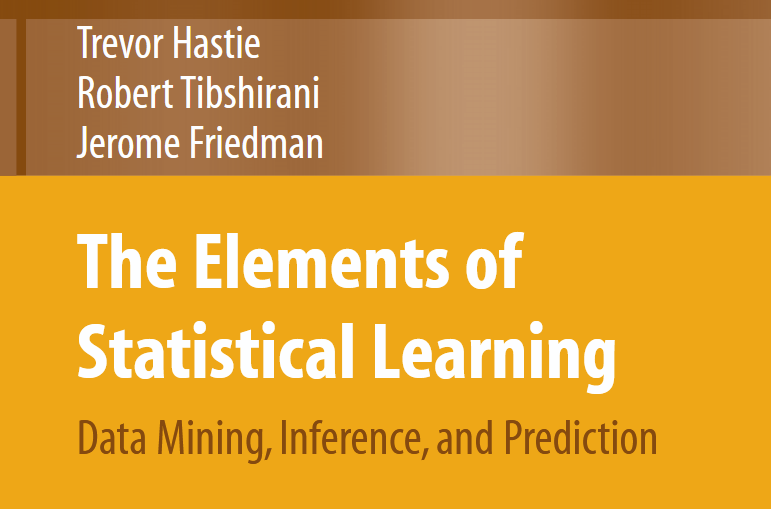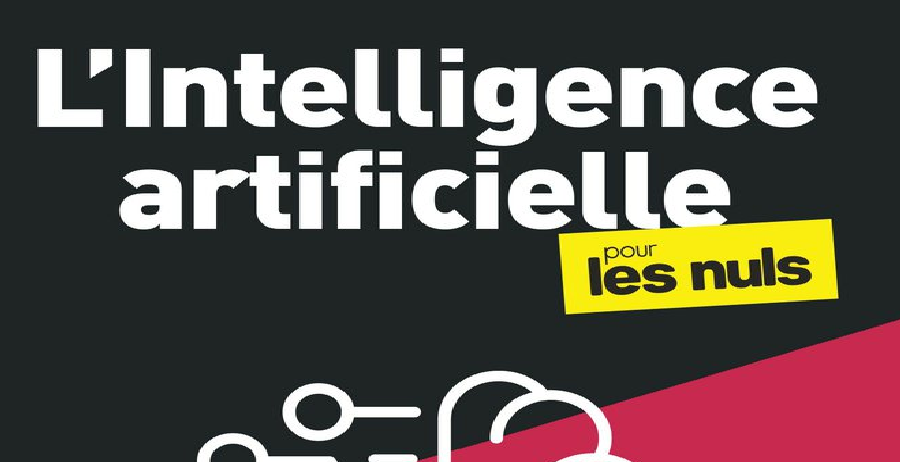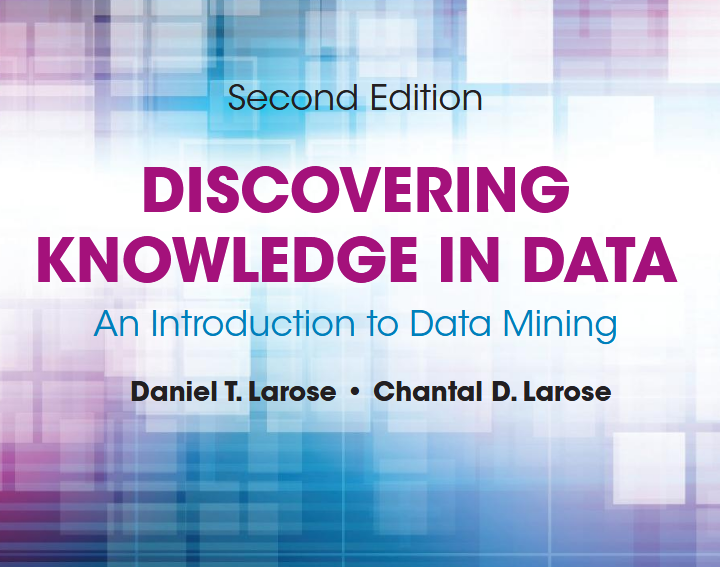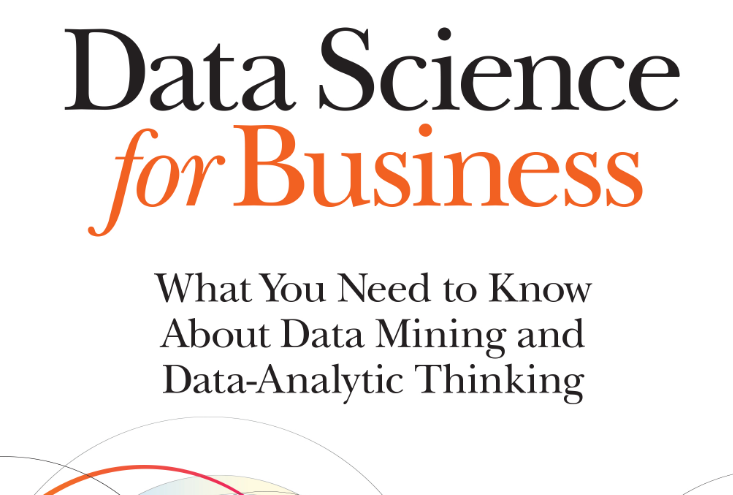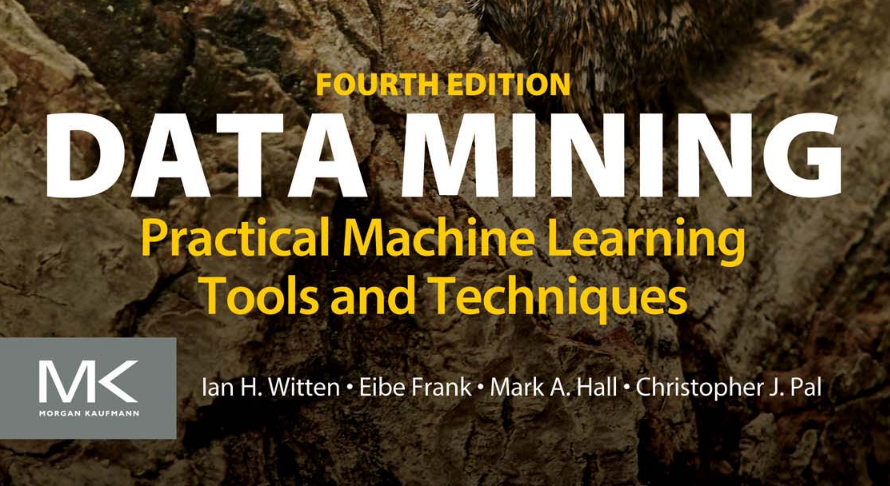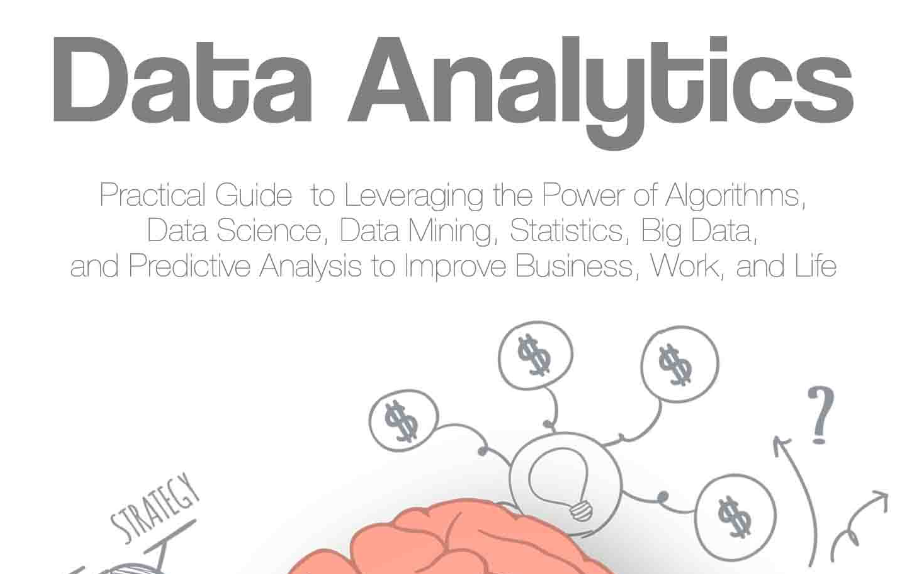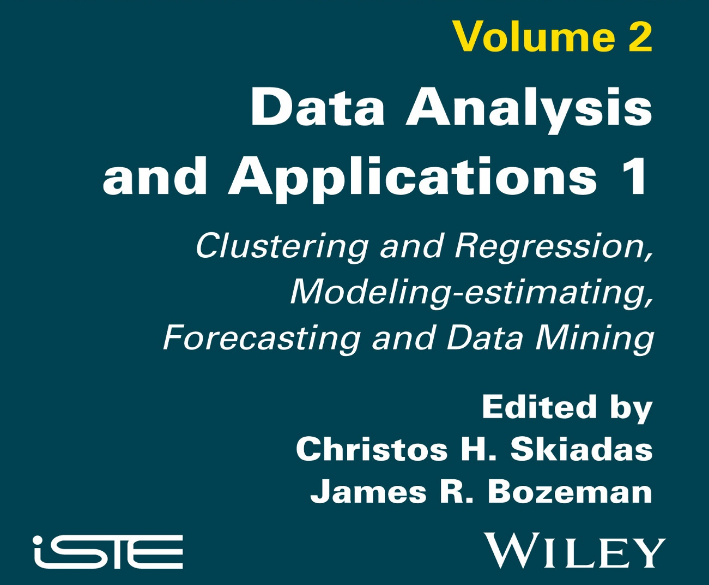The Elements of Statistical Learning is a comprehensive and authoritative text on statistical learning, data mining, and predictive modeling. Written by renowned experts Trevor Hastie, Robert Tibshirani, and Jerome Friedman, the book provides a detailed exploration of the theoretical foundations and practical applications of various statistical learning techniques. The text covers a broad range of topics, including linear regression, classification, decision trees, support vector machines, neural networks, and ensemble methods, among others. It emphasizes the interplay between data analysis, statistical theory, and computational algorithms, making it an essential resource for both practitioners and researchers in the field of data science and machine learning. Throughout the book, the authors focus on the principles of model selection, overfitting, and the bias-variance tradeoff, explaining how to choose the right model for a given dataset and problem. The book also highlights key concepts in model evaluation, including cross-validation and resampling techniques, and introduces advanced topics such as unsupervised learning, clustering, and nonparametric methods.
-
The Elements of Statistical Learning Data Mining, Inference, and Prediction
Auteur: Trevor Hastie, Robert Tibshirani, Jerome Friedman
The Elements of Statistical Learning Data Mining, Inference, and Prediction
- Auteur: Trevor Hastie, Robert Tibshirani, Jerome Friedman
- ISBN:
-
The Deep Learning Revolution
Auteur: Terrence J. Sejnowski
The Deep Learning Revolution
- Auteur: Terrence J. Sejnowski
- ISBN:
The Deep Learning Revolution by Terrence J. Sejnowski is a comprehensive exploration of the transformative impact of deep learning on artificial intelligence (AI), machine learning, and neuroscience. Drawing on his decades of experience as a leading researcher in the field, Sejnowski provides an accessible yet detailed account of the development of deep learning algorithms and their ability to mimic the brain's neural networks. The book traces the history of AI, highlighting key breakthroughs, including the development of neural networks, and the pivotal moment when deep learning techniques, powered by large datasets and increased computational power, began to revolutionize a wide array of industries. Sejnowski explains how deep learning algorithms have enabled machines to achieve remarkable feats such as image recognition, natural language processing, and playing complex games like Go and chess. The author delves into the intersection of neuroscience and deep learning, shedding light on how insights from the brain have inspired the development of artificial neural networks. He also discusses the societal implications of AI, from its impact on jobs and ethics to its potential to solve pressing global challenges
-
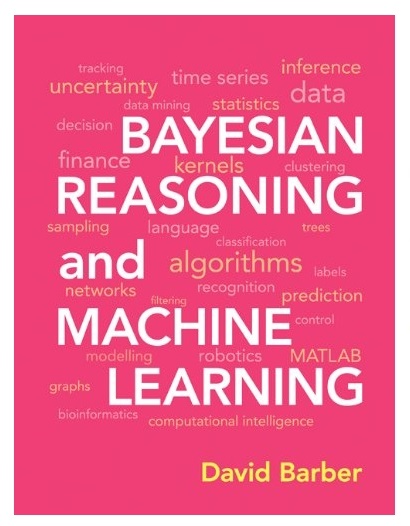
Bayesian Reasoning and Machine Learning
Auteur: David Barber
Bayesian Reasoning and Machine Learning
- Auteur: David Barber
- ISBN:
Machine learning methods extract value from vast data sets quickly and with modest resources. They are established tools in a wide range of industrial applications, including search engines, DNA sequencing, stock market analysis, and robot locomotion, and their use is spreading rapidly. People who know the methods have their choice of rewarding jobs. This hands-on text opens these opportunities to computer science students with modest mathematical backgrounds. It is designed for final-year undergraduates and master's students with limited background in linear algebra and calculus. Comprehensive and coherent, it develops everything from basic reasoning to advanced techniques within the framework of graphical models. Students learn more than a menu of techniques, they develop analytical and problem-solving skills that equip them for the real world.
-
The Elements of Statistical Learning Data Mining, Inference, and Prediction
Auteur: Trevor Hastie, Robert Tibshirani et Jerome Friedman
The Elements of Statistical Learning Data Mining, Inference, and Prediction
- Auteur: Trevor Hastie, Robert Tibshirani et Jerome Friedman
- ISBN:
Over the past decades, advances in computing and information technology have led to massive datasets in fields ranging from medicine and biology to finance and marketing. Understanding and drawing insights from these data require more than traditional statistical tools giving rise to new methods in data mining, machine learning, and bioinformatics. This book brings together the key ideas from these areas under a unified, statistical framework. Rather than focusing on heavy mathematical derivations, the emphasis is on concepts, intuition, and practical understanding. Through numerous examples and plentiful four color graphics, the book aims to make complex methods accessible while retaining statistical rigor.
-
PANORAMA DE L'INTELLIGENCE ARTIFICIELLE : ses bases méthodologiques ses développements
Auteur: Pierre Marquis, Odile Papini et Henri Prade
PANORAMA DE L'INTELLIGENCE ARTIFICIELLE : ses bases méthodologiques ses développements
- Auteur: Pierre Marquis, Odile Papini et Henri Prade
- ISBN: 978.2.36493.043.8
Panorama de l'intelligence artificielle est un ouvrage exhaustif et structuré qui offre une synthèse rigoureuse de l'état de l'IA en 2014. Il permet au lecteur de comprendre les fondements théoriques de cette discipline, ses avancées technologiques et ses défis actuels. À la fois complet et didactique, il est une ressource précieuse pour toute personne souhaitant comprendre les concepts et les enjeux liés à l’intelligence artificielle, que ce soit du point de vue scientifique, technique, ou sociétal.
-
L’Intelligence artificielle en 50 notions clés pour les Nuls
Auteur: Thomas Solignac
L’Intelligence artificielle en 50 notions clés pour les Nuls
- Auteur: Thomas Solignac
- ISBN: 978-2-412-09539-3
Dans ce livre accessible et pédagogique, Thomas Solignac nous propose un tour d’horizon de l’intelligence artificielle (IA) en expliquant 50 notions clés, allant des bases aux concepts plus avancés. L'objectif de cet ouvrage est de démystifier l'IA pour le grand public, en présentant de manière claire et simple les principaux concepts et enjeux liés à cette technologie.
-
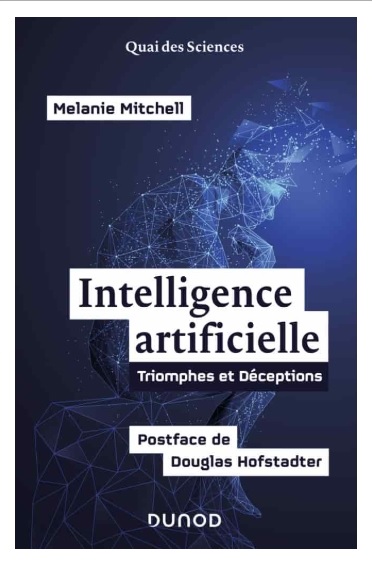
Intelligence artificielle. Triomphes et déceptions
Auteur: Melanie Mitchell
Intelligence artificielle. Triomphes et déceptions
- Auteur: Melanie Mitchell
- ISBN: 978-2-10-083219-4
-
-
DISCOVERING KNOWLEDGE IN DATA: An Introduction to Data Mining
Auteur: Daniel T. Larose and Chantal D. Larose
DISCOVERING KNOWLEDGE IN DATA: An Introduction to Data Mining
- Auteur: Daniel T. Larose and Chantal D. Larose
- ISBN:
The book Discovering Knowledge in Data offers a practical yet rigorous introduction to the field of data mining, situated at the crossroads of predictive analytics, statistical analysis, and business intelligence. It is designed to guide readers whether students, analysts, or professionals through the full pipeline of turning raw data into actionable knowledge. Rather than treating data mining tools as “black boxes,” the authors adopt a “white box” methodology: they explain the mathematical and statistical underpinnings of each algorithm, illustrate how they work with real world datasets, and walk step by step through data preprocessing, exploratory analysis, modeling, and evaluation. The book covers a broad set of core topics and techniques: data cleaning and transformation; exploratory data analysis; supervised and unsupervised learning methods (classification, regression, clustering, association rules); neural networks; decision trees; k nearest neighbors; Kohonen maps; missing data imputation; model evaluation (including error metrics, overfitting, cross validation, cost/benefit analysis); and data summarization and visualization.
-
Data Science for Business
Auteur: Foster Provost and Tom Fawcett
Data Science for Business
- Auteur: Foster Provost and Tom Fawcett
- ISBN: 978-1-449-36132-7
Data Science for Business provides a comprehensive introduction to the key concepts, principles, and methodologies of data science, designed specifically for business professionals, analysts, managers, and students. Rather than teaching coding or specific tools, the book focuses on the fundamental ideas behind data-analytic thinking, enabling readers to understand how data science creates value and how to interact effectively with data-driven projects and teams.
-
Data Mining: Practical Machine Learning Tools and Techniques
Auteur: Ian H. Witten, Eibe Frank, Mark A. Hall and Christopher J. Pal
Data Mining: Practical Machine Learning Tools and Techniques
- Auteur: Ian H. Witten, Eibe Frank, Mark A. Hall and Christopher J. Pal
- ISBN: 978-0-12-804291-5
Data Mining: Practical Machine Learning Tools and Techniques aims to demystify data mining and machine-learning: presenting a practical, hands-on guide to extracting meaningful information from raw data using established algorithms, statistical and machine-learning techniques, and tool-supported workflows. The book combines theory and practice: it explains the core concepts underpinning classification, regression, clustering, association rules, model evaluation, data preprocessing, and more but also shows how to implement them in real-world settings using the accompanying software toolkit (WEKA).
-
Data Analytics: Practical Guide to Leveraging the Power of Algorithms, Data Science, Data Mining, Statistics, Big Data, and Predictive Analysis to Improve Business, Work, and Life
Auteur: Arthur Zhang
Data Analytics: Practical Guide to Leveraging the Power of Algorithms, Data Science, Data Mining, Statistics, Big Data, and Predictive Analysis to Improve Business, Work, and Life
- Auteur: Arthur Zhang
- ISBN:
This book is a comprehensive yet accessible guide to “data analytics” covering algorithms, data science, data mining, statistics, big data, and predictive analytics and how to apply these tools to improve business performance, professional work, and everyday life. It is designed to serve a broad audience: from beginners with little or no background, to experienced professionals (e.g. managers, analysts, developers, business executives) who want a practical and structured introduction (or refresher) to the core concepts and methods of data analytics. In short: the book aims to demystify data analytics and show that with the right approach data, algorithms and analytics are not just for big tech firms, but can be leveraged by businesses (large or small), professionals, or even individuals to make better decisions, drive efficiency, predict trends, and extract value from data in everyday professional and business contexts.
-
Data Analysis and Applications1: Clustering and Regression, Modeling-estimating, Forecasting and Data Mining
Auteur: Christos H. Skiadas & James R. Bozeman
Data Analysis and Applications1: Clustering and Regression, Modeling-estimating, Forecasting and Data Mining
- Auteur: Christos H. Skiadas & James R. Bozeman
- ISBN: 978-1-78630-382-0
Data Analysis and Applications 1 presents a set of methodological and applied contributions in the fields of clustering, regression, statistical modeling, forecasting, and data-mining techniques. The volume brings together research works addressing both theoretical developments and practical implementations for handling complex datasets from various scientific and industrial domains. The book highlights: •Clustering methods used to explore structure in data and form meaningful groups. •Regression techniques for modeling relationships among variables and improving predictive accuracy. •Estimation and modeling strategies aimed at capturing underlying data-generation mechanisms. •Forecasting approaches applied to temporal or multivariate datasets. •Data-mining algorithms for extracting patterns, knowledge, and actionable insights. Emphasis is placed on methodological innovation, comparative analysis, and real-world case studies that illustrate the practical relevance of the proposed approaches. The volume is intended for researchers, practitioners, and students seeking modern perspectives on statistical learning and data-analytic methods.
